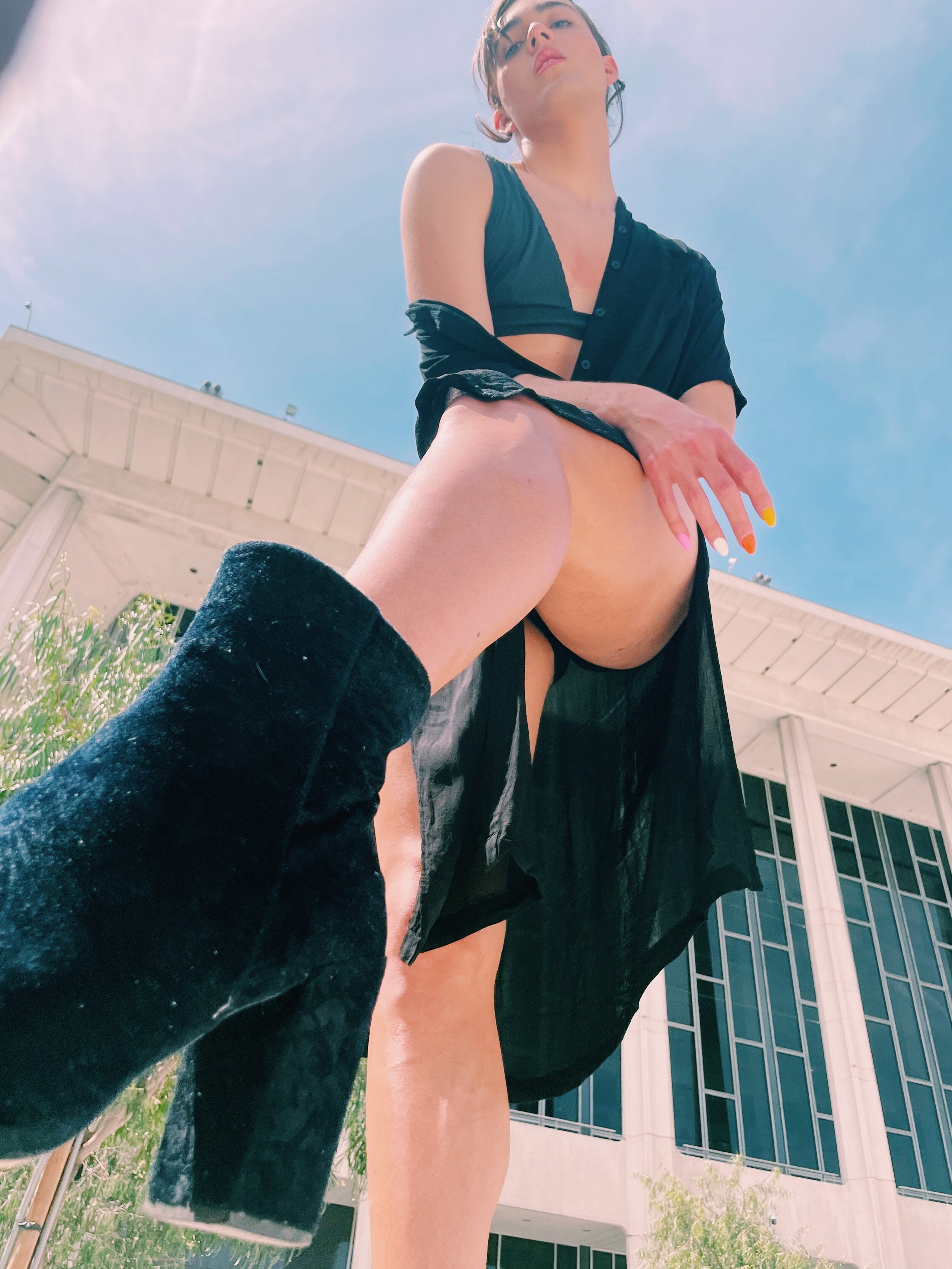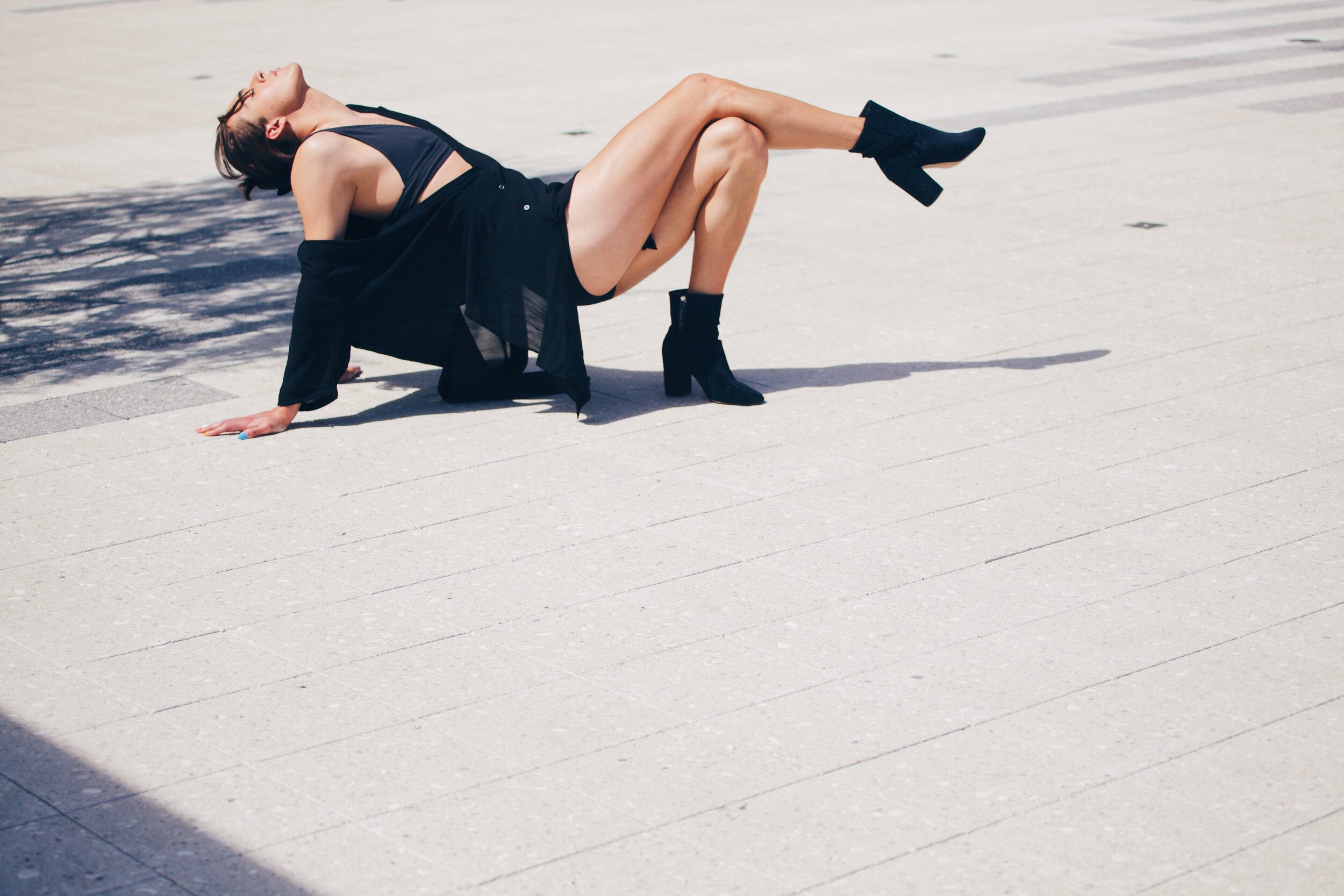Lennon Torres: A Dancer Making the Industry More Gender Inclusive
Lennon started dancing at the age of ten at a local studio in her small hometown of Litchfield, Arizona. The first dance class she attended was with her friend in a boutique studio. She fell in love with dance and soon realized that it could take her places. As she got older, Lennon quickly moved to more prestigious studios. “It was weird because there was never really a moment that I thought to myself, ‘this is what I want to do for the rest of my life because I didn't really know what the career options were [as a dancer]. I just knew that I loved the physical and mental demands of the industry and I had a blast competing. It was so much fun,” she says.
PHOTO by TAYLOR UPSAHL
At thirteen she joined the cast of Lifetime’s Dance Moms and Abby’s Ultimate Dance Competition, spending two formative years in the public eye. “[Being on these shows] was a great starting point for my career but a lot for a young kid to go through. [It] put everything on pause,” she reflects. “From twelve to fifteen, I didn’t really have much time to grow or do any self-reflection. I think this was very detrimental to my long-term growth. I think I would have probably come out sooner sexuality-wise and also gender-wise and started that conversation much earlier if I wasn't on TV and kind of in that public eye. But you know, it's a double-edged sword because I wouldn't want it to happen any other way [than what ended up happening].”
Throughout her dance journey, Lennon had to deal with instructors using gender-binary language and constantly urging students to be more masculine or more feminine. It wasn’t until her time at the University of Southern California’s Kaufman School of Dance that she realized she could make a difference by creating more inclusive environments in the dance space and beyond. “I think a lot of the time people assume that arts industries and dance are these amazing, welcoming, inclusive places. [The reality is] even if people say they support you and want to see you grow, there are still systems that make it nearly impossible for that to actually come to fruition.” Lennon saw how casting directors turned her down for roles, saying it had nothing to do with her skills but that they were just not ready to change the way they cast shows traditionally. “A lot of individuals and a lot of people have shown their support for me, but at large, the system is still failing. And that's why we have to keep pushing and keep having these conversations for sure,” she says.
PHOTOS by SIDNEY CHUCKAS
After coming out as nonbinary her sophomore year, she began having conversations with the faculty and vice dean on how the school could become a safer space for those beyond the binary. “It was really just me trying to make the program work for myself, and luckily in [the future] it’s going to be good for anyone coming into the school who identifies outside the binary,” she says. “With everyone’s help, we’ve made the program look like something entirely different than what it was when we first got there.” These changes include reshaping the language used when teaching famous, but binary, repertory, making ballet classes skill-focused rather than gender-focused, and establishing an environment where pronouns are collected and respected. Lennon continues, “I am confident that [they] are one of the most forward-thinking programs when it comes to gender because of the conversations that we started having when I was there.”
Reshaping USC’s dance program was only the beginning of Lennon’s journey towards building safe and inclusive dance communities. In 2020, Lennon started “Continuum Community,” a resource hub filled with information on how different communities can incorporate more gender-inclusive practices. These resources range from simple educational videos to one-on-one consultations with a team member. The company also has its own guidebook titled “An Evolving Conversation on Gender: Dance Edition,” drawing upon Lennon’s own notes and conversations from her experience at USC. “It was something I wrote to contextualize everything that was in my head, and I figured it could be useful for others,” she reflects. “It’s really refreshing to see all of these really influential people in the dance industry who I’ve looked up to my whole life reading and having my book.”
PHOTO by TAYLOR UPSAHL
In May 2021, she announced her transition publicly on TikTok, discussing how she is currently relearning how to embrace and train her body. Throughout the shutdowns caused by the pandemic, Lennon was able to use her newfound downtime to really process how she felt about her gender. “I hadn’t had that conversation with myself… my entire career was my body. And it was a really hard thing to realize that sometimes it's okay to step away and do what's best for you and the field will have to mold after the fact,” she recalls.
Since transitioning, much of the dance training she grew up doing stayed the same, but how she feels and perceives herself when she looks in the mirror has been vastly different. “Living in a male body is very different from living in a female body,” she says. “There’s so much to think about now being a female body and knowing that that’s the trajectory that I’m on. It’s definitely a mind game [to allow myself to embrace who I truly am] but it’s something I’m so excited and eager to do.”
After taking some time away from the studio and building Continuum Community, Lennon was able to reflect on what she wanted beyond a career in dance. She began grad school at USC in August of 2020 to further her interest in advocacy. “I have a lot of different avenues I hope to accomplish… I'm in grad school and doing a lot on social media. But I also want a professional dance career. I would love to live in Europe and dance in a contemporary company. I also could totally see myself doing communications or media relations for political candidates.” she says. “At grad school, I hope to keep growing and reinventing myself while keeping myself interested.”
As for the future of Continuum Community, Lennon “hope[s] to be a face that trans people, especially trans athletes and dancers, can look up to.” She emphasizes, “I want to remind them that they can have very full lives and that being trans doesn’t have to be our whole identity.”
STORY JACQUI PASH
COVER PHOTO RACHEL RINSEMA



